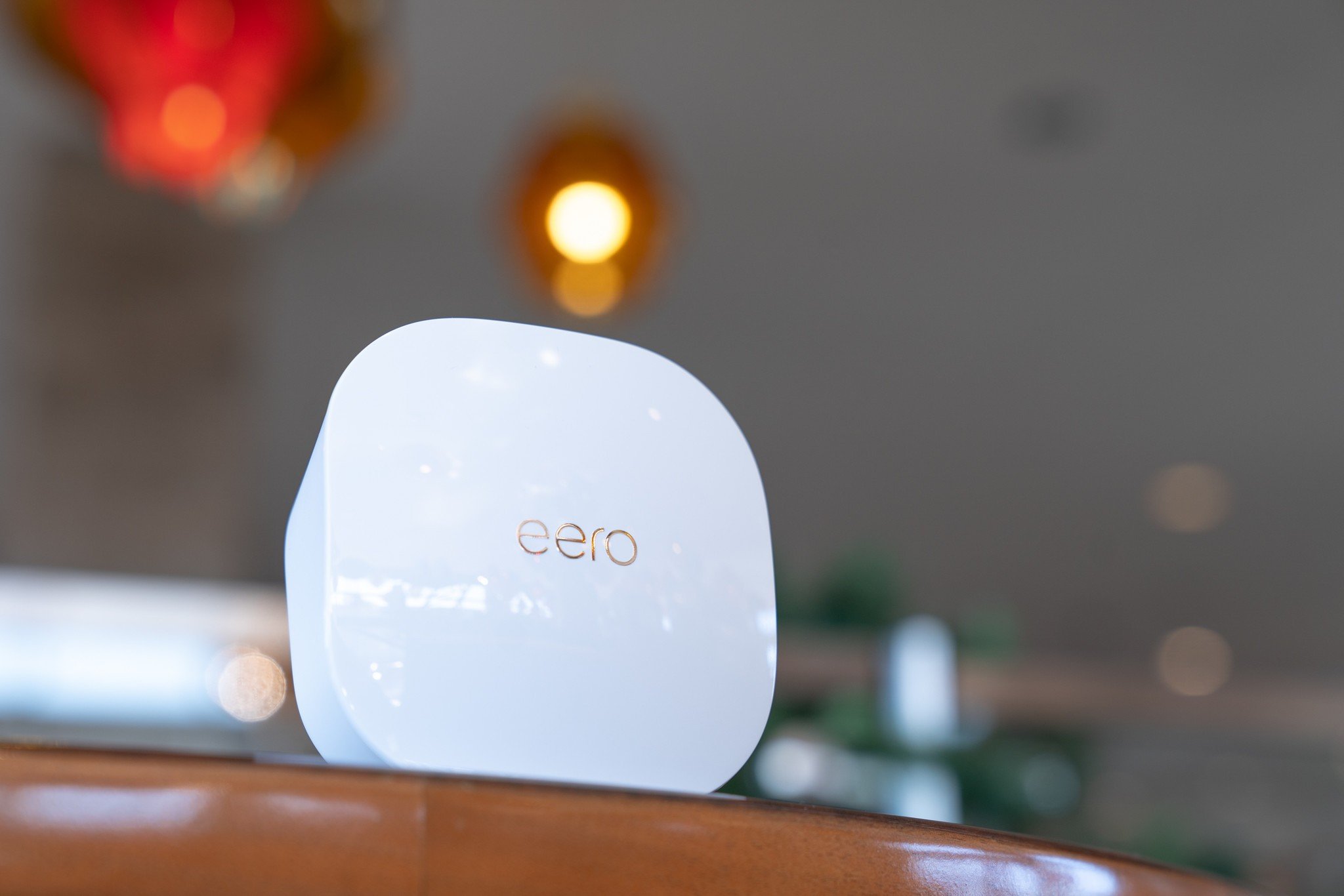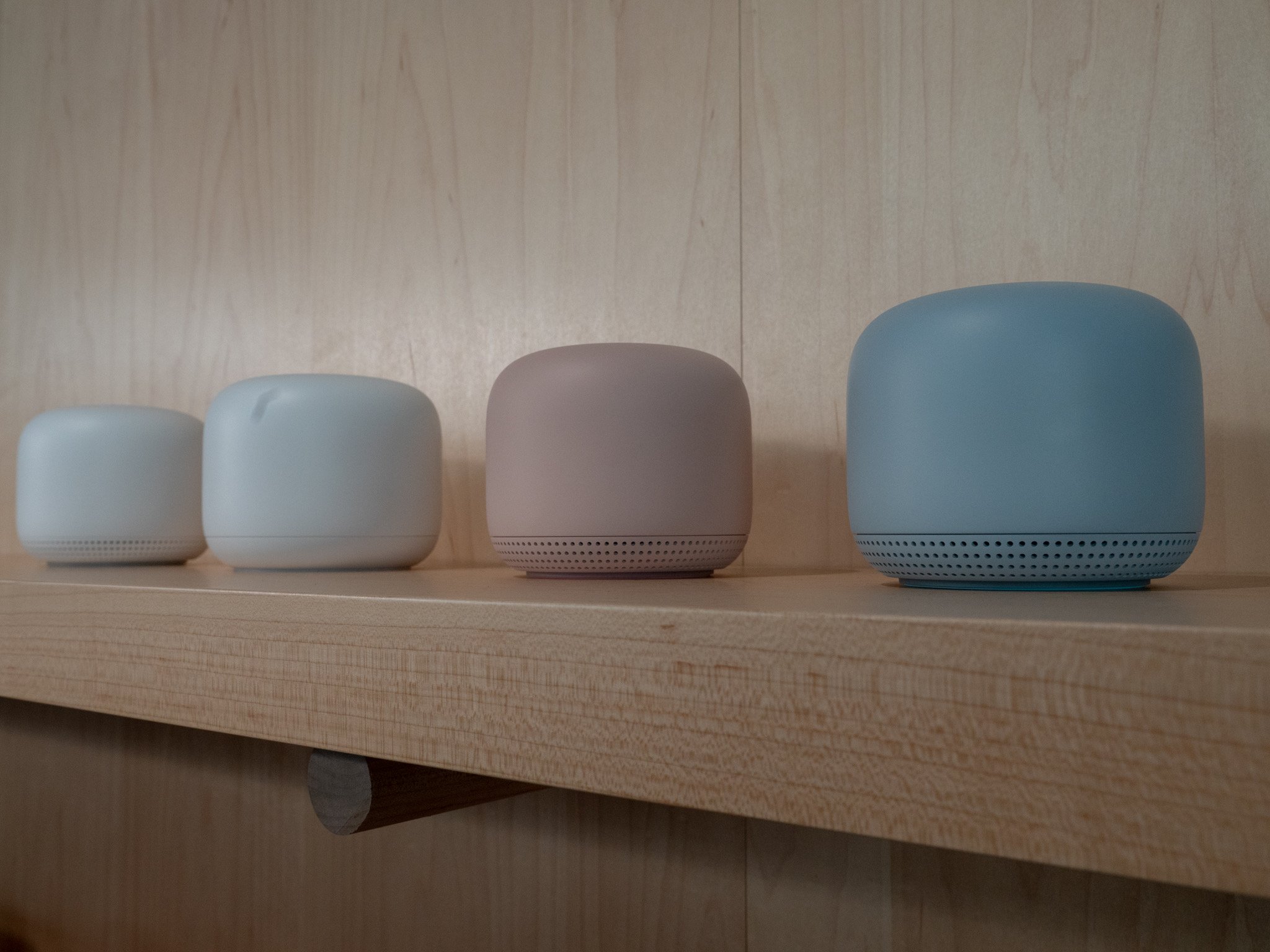What is mesh Wi-Fi and is it worth it?

What is mesh Wi-Fi and is it worth it?
What is mesh Wi-Fi?
Mesh Wi-Fi sounds like magic. When it works, it feels like it. It's a speedy internet connection that fills every room in your home or building. But to really understand it, you need to wipe away the sparkles and dig into what makes mesh Wi-Fi significantly different from the Wi-Fi routers we've had around for decades.
To understand mesh Wi-Fi, you need to have a basic understanding of routers and extenders. Routers take an internet connection from your modem or gateway and spit it back out either wired or wirelessly to your devices, like a phone or a tablet. Routers have antennas that spread the wireless signal around them. At the very edges of that signal, the connection quality drops, and the overall speed drops too.
To solve this, you can get an extender. Extenders can connect wired or wirelessly to your router or gateway, and they carry that signal further away from the router under a separate network name. Extenders are a nice, cheaper alternative to mesh kits if you're not interested in getting into a new ecosystem of devices.
Getting the right coverage

For many people in small spaces, a router is enough. If you have a bigger space, an extender can help out specific areas that your router's Wi-Fi signal can't reach. However, because homes and buildings can vary on layout and materials, the quality of that coverage can be spotty. Your devices might not be great at swapping between different networks as you move around.
Mesh Wi-Fi aims to solve these key problems. It's like covering your home in an invisible spider web except way less creepy. The web is all the connections between the hubs, or nodes, of a mesh network. Each node pushes out a Wi-Fi signal under the same network name, removing any need to swap between signals as you move around.
Because each node talks to each other instead of traveling directly back to the router like links in a chain, the Wi-Fi signal avoids as much degradation. So, you get faster speeds, and your devices don't have to do any work to stay connected to the best signal. You can think of mesh Wi-Fi systems as smart extenders, widening your wireless coverage in the most efficient way possible.
Why would you need mesh Wi-Fi?
Mesh Wi-Fi excels in environments where too many things impeding on a wireless signal (metal, brick, concrete, etc.) or the space is too big for a router or an extender to realistically cover. When there are Wi-Fi dead spots, you can cover those with only two or three nodes in a mesh network.
Get the Windows Central Newsletter
All the latest news, reviews, and guides for Windows and Xbox diehards.
You don't have to run any ethernet cables, and if you need more, you can buy another node. The setup process for most mesh Wi-Fi systems is quickly taken care of with an app on your phone. Mesh Wi-Fi is all about ease, and it makes tinkering with the placement of extenders look like a waste of time.
Is mesh Wi-Fi worth it?

Whether or not mesh Wi-Fi is worth it depends a lot on your expectations. Mesh Wi-Fi is overkill in small apartments or for those who don't really need a connection throughout the entire building. Modern routers do a lot without much fuss. But if you have a large space with many people or need to add a signal to targeted locations, mesh Wi-Fi starts to compete as an option with extenders because they're much easier to expand in the future.
Some mesh Wi-Fi kits allow for both wired and wireless connection to the gateway or router, which can determine the kinds of speeds you'll get. If you have connection speeds higher than 1Gbps and want to keep something close to that via Wi-Fi, you need to look at specific products with two 5GHz bands or are labeled tri-band. However, for anyone with internet speeds around 400Mbps or lower, there are tons of options to start building a mesh network.
Price can be an issue with mesh networks, though. Popular options like Amazon's Eero and Google's Nest WiFi can start at $100 and increase to upwards of $500 depending on how many nodes you need. On the other hand, extenders can be as cheap as $50 and don't stray too far up from there.
Tyler Colp is a freelance writer for Windows Central. He's written about tech, games, and the culture around them across the internet. Ask him anything about Dark Souls or just follow him on Twitter.


